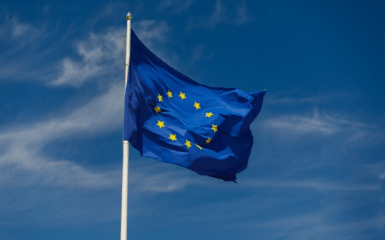The European Union is preparing a 16th package of sanctions against Russia, which is planned to be adopted by the third anniversary of the invasion of Ukraine. According to sources, the new sanctions package should be a "clear signal" to the Kremlin.
Points of attention
- The EU is preparing the 16th package of sanctions against Russia for the third anniversary of the invasion of Ukraine in order to send a clear signal to the Kremlin.
- The new sanctions will target specific sectors of the Russian economy and individuals associated with propaganda and disinformation.
- The 15th EU sanctions package restricted the activities of Russia's 'shadow fleet' and weakened the country's military-industrial complex.
- The sanctions affect individuals and organizations from Russia, China, and North Korea, including companies that supply drones and microelectronics to support military aggression.
- The measures include a travel ban, asset freezes, and restrictions on the provision of economic resources to entities that contribute to the Russian military-industrial complex.
What is known about the preparation of a new package of EU sanctions against Russia
As noted, the new package will include measures aimed at specific sectors of the Russian economy that have not yet been covered or have received insufficient attention.
The EU plans to impose sanctions against individuals and companies associated with Russian propaganda that are responsible for violating the territorial integrity of Ukraine.
The European Commission is also considering sanctions against those who have spied for Russia or participated in disinformation campaigns, particularly in Germany.
Brussels notes that it will be difficult to prove the involvement of individuals in Russia's hybrid attacks. Therefore, it is not yet known whether sanctions for espionage and disinformation will be introduced before February 24, 2025.
What is known about the 15th package of EU sanctions against Russia?
As noted, the new sanctions package is aimed at restricting the activities of Russia's "shadow fleet" and weakening its military-industrial complex.
The sanctions list includes 54 individuals and 30 entities from Russia, China, and North Korea. These include the Russian "shadow fleet," military personnel involved in the strikes on Okhmatdyt, and individuals responsible for the deportation of children and the spread of propaganda.
For the first time, sanctions have been imposed on Chinese companies supplying drone components and microelectronics to support Russian military aggression. The measures include travel bans, asset freezes, and restrictions on the provision of economic resources.
The list of ships banned from EU ports and maritime services has also been expanded, with 52 tankers from third countries belonging to Putin's "shadow fleet". The total number of vessels subject to sanctions has increased to 79.
The list also includes 32 new entities that contribute to the Russian military-industrial complex. They face increased restrictions on the export of dual-use goods and technologies that could improve Russia's defense sector.
These companies and organizations are located not only in Russia, but also in third countries, including China, India, Iran, Serbia, and the UAE.



